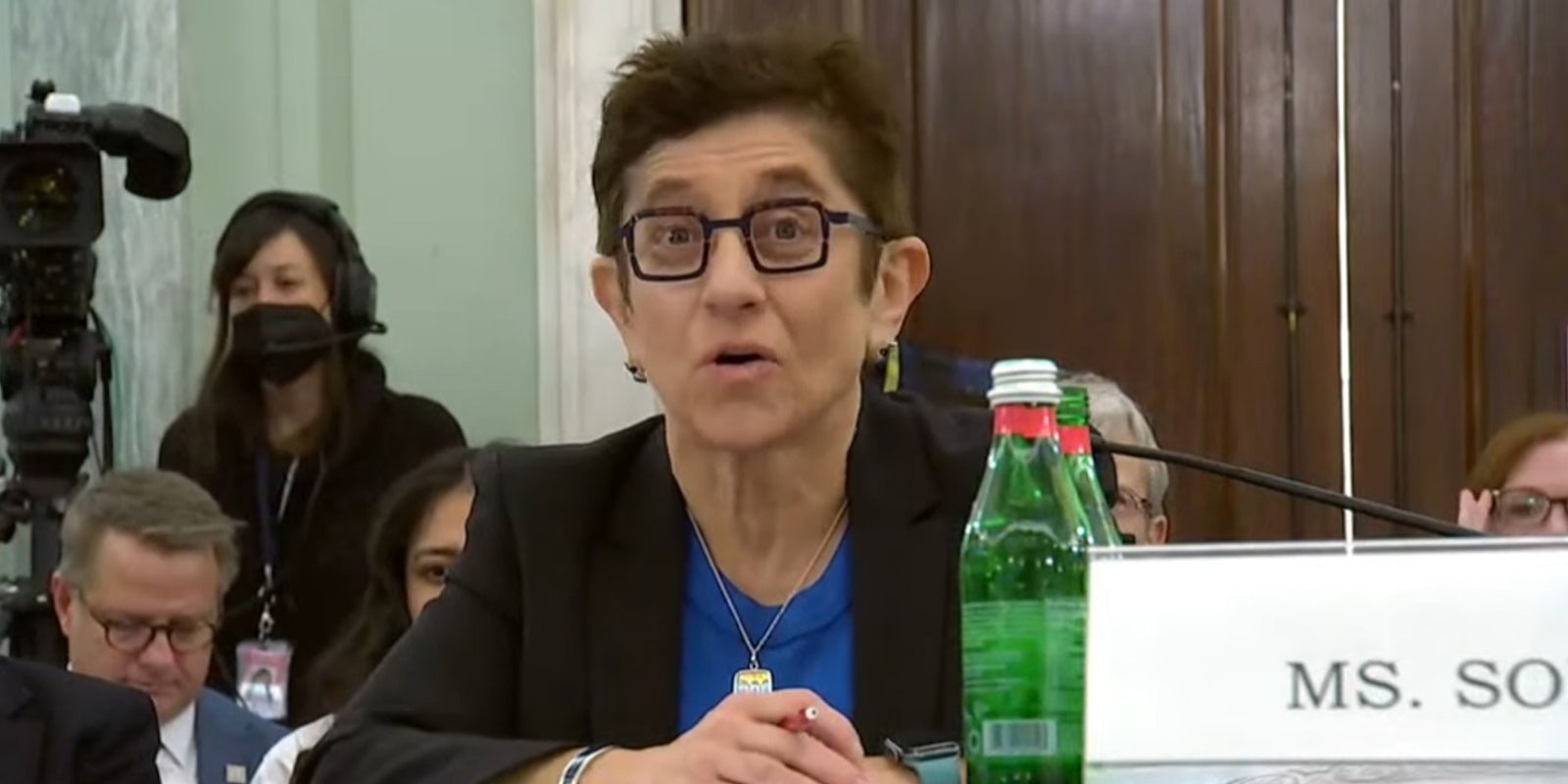Gigi Sohn, President Joe Biden’s pick to fill a long-vacant seat on the Federal Communications Commission, said in a hearing that the Federal Communications Commission (FCC) can still rule on net neutrality despite a recent, potentially major Supreme Court hurdle.
During Sohn’s hearing before the Senate Commerce Committee Tuesday, Senator Eric Schmitt (R-Mo.) asked her about a recent Supreme Court ruling that might affect the FCC’s ability to reinstate net neutrality, one of Sohn’s top priorities if approved.
In July, the Supreme Court decided a case between the Environmental Protection Agency and West Virginia over coal emissions that restricted the federal agency’s ability to make bold, unilateral rules, saying the power must be derived from Congress.
That ruling came after Sohn’s first confirmation hearing in 2022, when she said that the FCC had the authority to reinstate net neutrality if Congress didn’t act. In the year since Sohn’s first hearing, Congress has yet to take any action on net neutrality.
If Sohn were approved to the FCC, it would have a Democratic majority and be able to pass net neutrality rules with a 3-2 majority, one of Biden’s stated priorities when he campaigned for president.
At its core, net neutrality would mean that all internet service providers (ISPs) would be forced to treat all data and traffic equally without discrimination in favor of or against any one application or user. It would create strict rules against ISPs throttling internet service or offering paid prioritization of internet traffic.
The Supreme Court found that while the EPA may makes “unheralded” use of authority, it must be “acting pursuant to a clear delegation from that representative body.”
Schmitt and Sohn engaged in a somewhat tense exchange and Schmitt repeatedly narrowed his line of questioning in order to get Sohn to give a short answer.
“Do you believe you can act on net neutrality if Congress doesn’t act?” Schmitt said.
Sohn said she believes they can.
“I believe the FCC can and has the authority to act, it doesn’t mean it won’t be challenged and the West Virginia case is going to be a challenge for net neutrality rules,” Sohn said.
Sohn was then grilled by Schmitt for saying she and the FCC could defy Supreme Court precedent.
“Let’s add another thing to the list of reasons you should not be confirmed,” he said. “It appears to me that regardless of what the law says, regardless of what the Supreme Court of the United States precedent is, that you think you can act on issues of major economic significance or political significance just because you’re frustrated Congress hasn’t.”
However, given the FCC has previously reinstated net neutrality, it might not be considered an “unheralded” act by the agency.
Sohn also responded that she believes that the 2005 National Cable & Telecommunications Ass’n v. Brand X Internet Services Supreme Court case allows the FCC to regulate broadband.
“The Brand X case says that the FCC has the authority to decide whether broadband is a telecommunications service and an information service, and that’s kind of the crux of net neutrality,” Sohn said. “Now, whether the FCC could actually adopt net neutrality rules, I think that’s a more difficult question I’ll be honest with you.”
Sohn is in her third round of confirmation hearings after she was nominated by Biden. In 2022, she endured a slow-moving Democratic Congress and attacks from Republicans who stonewalled her nomination, forcing Biden to re-up her in 2023.



